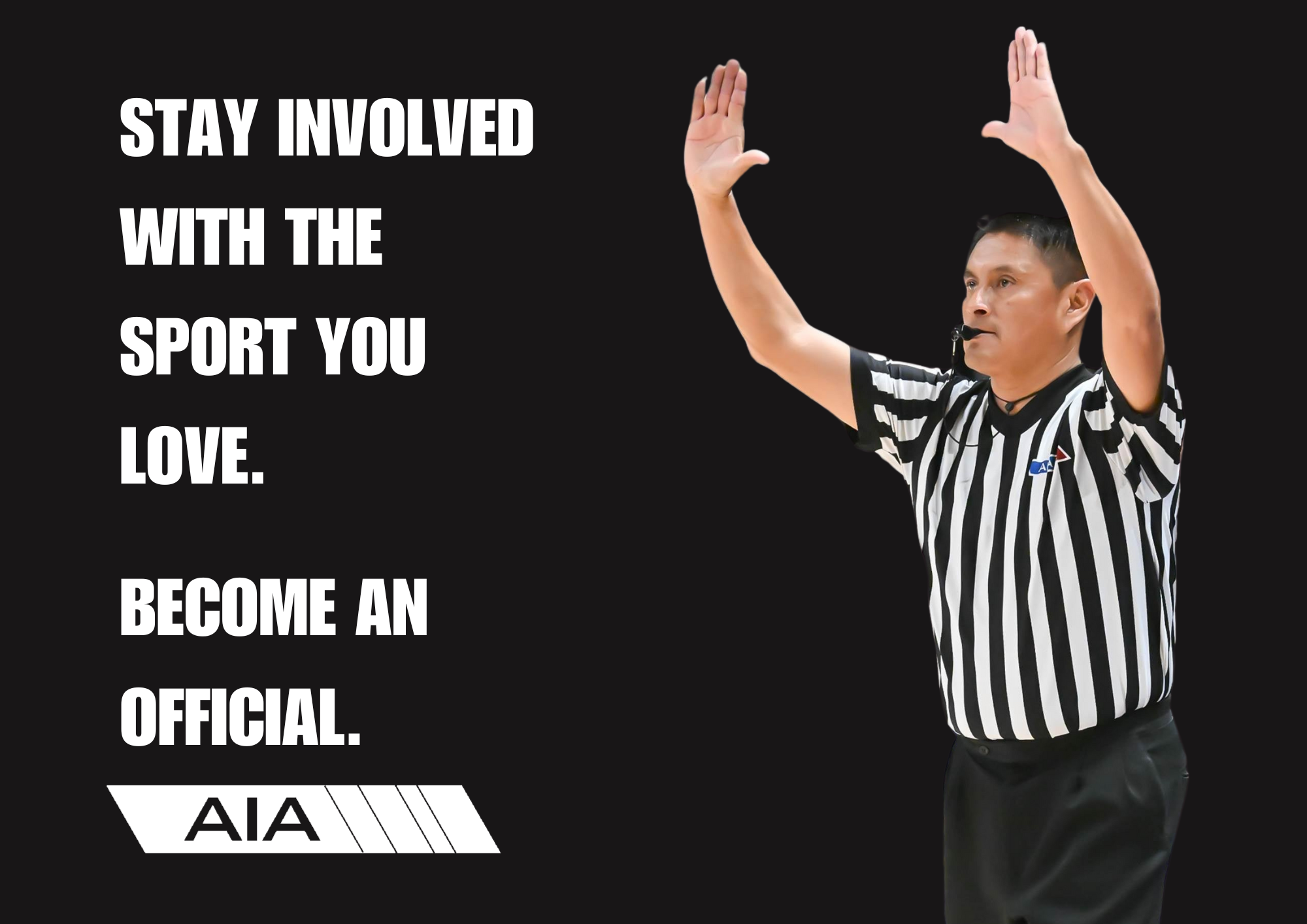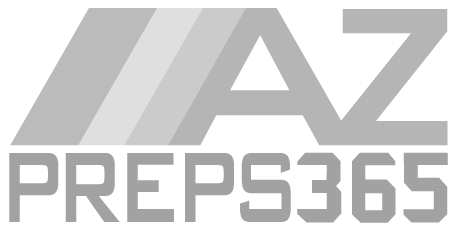First VB officiating assignment runs smoothly
October 4, 2016 by Jose Garcia, AZPreps365
The day to officiate my first high school event had arrived.
I’ve covered high school sports for almost 20 years, but no amount of game reporting can prepare you for officiating. I’m even embarrassed to admit that my knowledge of volleyball, the sport I picked this summer to officiate, isn’t as strong as I thought it was.
Needless to say, the nerves were present as I walked into Desert Edge’s gym last week to call the freshman girls volleyball match between Desert Edge and Lake Havasu.
“Don’t mess up,” said Desert Edge football coach Rich Wellbrock jokingly when I bumped into him.
A whole bunch of messing up was about to commence, I thought.
For the past three months, I’ve worked toward becoming a certified Arizona Interscholastic Association volleyball referee. The objective was to spotlight an important high school sports job that is often criticized more than commended.
When I was a journalist, I probably criticized an official or two. It was time to walk in the shoes of officials — and may be face some of the slings and arrows.
As is the case for most first-time officials, I was paired with a veteran official, Benjamin Guzman, for my first volleyball assignment.
Two volleyball officials, the up ref (the R-I) and the down ref (the R-2), and a couple of student linesmen call a high school volleyball match. Speaking of the R-1, the head volleyball official during a match, I tried to weasel my way out of being the R-1 last week.
But Guzman didn’t buy my excuse of being a rookie.
“It’s the only way you are going to learn,” said Guzman about appointing me the R-1.
I’ve been thrown into the fire — and tiptoeing around it — since I started training. The high school volleyball rule book is 71 pages long, but I discovered this summer that the learn-by-doing-method is the best way to become an official.
And no rule book can prepare you for everything that happens on and off the court. Before my match started, Guzman and I made our biggest decision of the match.
A volleyball official stand for the R-1 wasn’t available for our match in an auxiliary gym. A big wooden box was placed in the spot for the R-1 instead.
For the safety of the student athletes, we decided to remove the box. But that left us with calling the match without the high vantage point that the R-1 needs to see the entire court.
To view as much as possible, Guzman and I decided to stand on opposite sides of the court when the ball was in play. Despite the floor level officiating and early nerves, the two-game match went without a hitch.
I did forget to bring my red and yellow violation cards, but I never needed them, as the players, coaches, administrators and fans were respectful. And whenever I struggled to use the correct hand signals, Guzman had my back.
For the most part, from an officiating perspective, my match was uneventful, which is a good thing for officials.
Guzman officiates “hundreds” of volleyball and baseball games throughout the year on a pair of bad knees. He’s close to retirement age, but officiating high school matches keeps him young at heart and active.
“I love being out here,” he said. “What else am I going to do? I love being out here with the kids.”
One of the things that stood out during my officiating training experience was what Guzman mentioned — the kids. They were often stated as one of the biggest reasons why folks from different backgrounds decide to become officials.
What also stood out was the amount of time veteran officials give back to their sport. The veteran officials that train the rookies do so for free.
They volunteer their time annually during the summer to train and officiate. When they are calling high school volleyball matches, officials are paid $35 for working a freshman or junior varsity match and $50 for varsity matches.
The money comes from the schools’ tight coffers. It’s safe to say that I’ve gained a new appreciation for the men and women who sport the black and white uniform of officials. For all of the officials, including the ones that trained me, thank you.
 (Veteran volleyball official Benjamin Guzman (right) and azpreps365 staff member Jose Garcia)
(Veteran volleyball official Benjamin Guzman (right) and azpreps365 staff member Jose Garcia)
To learn how to become an official, visit the AIA’s link for officials.
Because he was working on a volleyball officiating writing assignment, Garcia did not receive a check for working his first volleyball match.



